U-M plays up the humor and sophisticated fun found in Massenet’s opera "Cinderella (Cendrillon)"
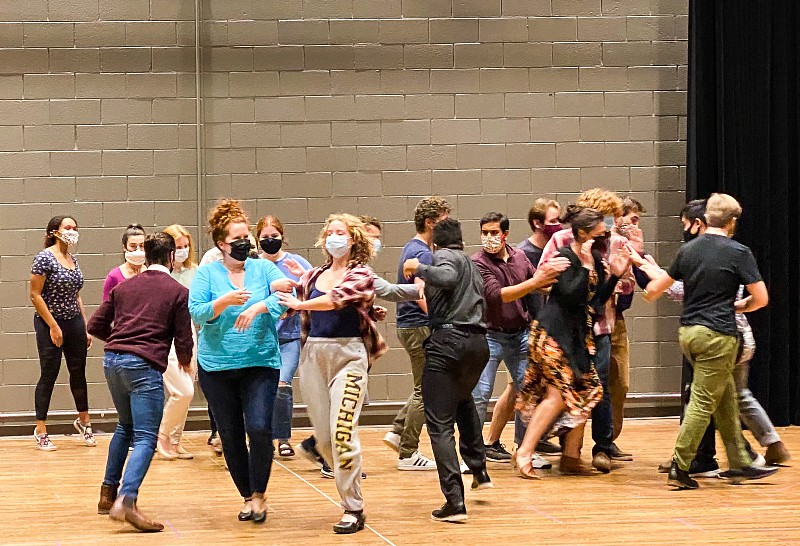
“Light, fairy tale, bubbly, and elegant” are words that Kirk Severtson uses to describe Jules Massenet’s opera Cinderella (Cendrillon in French).
The University of Michigan’s Department of Voice and the University Symphony Orchestra presentation of Massenet’s Cinderella (Cendrillon) will be staged Nov. 4-7 at the Power Center.
For music director Severtson and stage director Abbigail Coté, this famous story of a poor girl abused by her stepmother and stepsisters who triumphs by winning the love of a prince (with the help of a fairy godmother) seemed like just the right remedy following a year and a half of COVID restrictions and worries.
“We chose this piece for its theme and subject that was specifically post-COVID and not something set in a dystopian, nightmarish future. We chose something light, fairy tale, and bubbly,” Severtson said.
Cinderella may just be the oldest and most beloved of the classic fairy tales. It has been the subject of numerous versions and variations dating back to a tale told in China in the fourth century B.C. It was a Disney animated musical (and "Cinderella Castle" is a Disney trademark), a Rodgers and Hammerstein musical for television and later stage, several other films, and numerous ballets and operas. Massenet’s version, with a libretto by Henri Cain, premiered in 1899. A popular version by Gioachino Rossini premiered in 1817.
Coté has a theory about the story's longevity.
The Rasa Festival shifts formats for its 2021 celebration of Indian arts
Ann Arbor's Rasa Festival, which celebrates Indian dance, music, theater, film, and poetry, moved online during the quarantine. Generally speaking, it kept the format of the previous years' festivals just with scheduled live streams during the length of the festival rather than in-person events.
For the 2021 edition, Rasa will still be entirely online, but rather than presenting a series of livestreams in a compacted time period, the festival will produce event videos about once a month for the next six to eight months.
The Ann Arbor District Library is a partner for this year's Rasa Festival, which kicks off with Songs of Dusk on AADL.tv on Saturday, October 23, at 11 a.m.
Songs of Dusk features five dances choreographed to songs featuring the lyrics of poet Batakrishna Dey, the father of Rasa founder Sreyashi Dey.
The dancers are the styles of dances there are doing include:
U-M production updates the Roaring Twenties-set musical "The Wild Party" for the Cell Phone Age
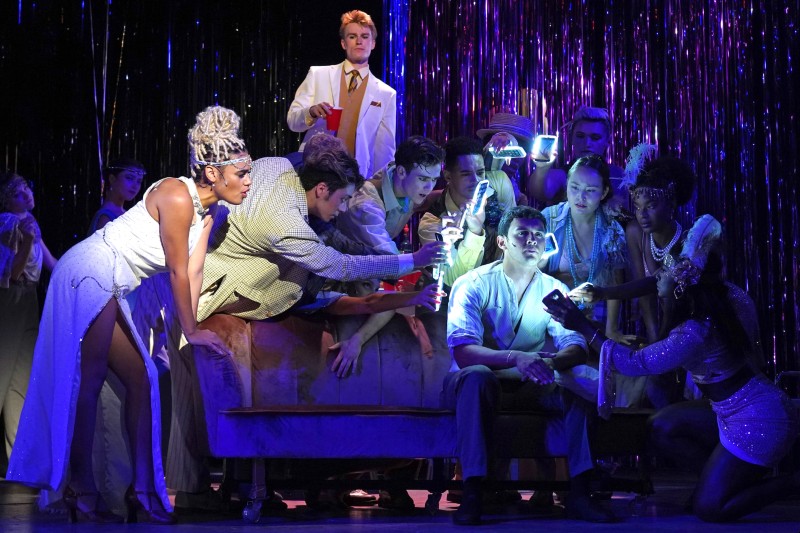
Joseph Moncore March’s 1928 book-length poem The Wild Party was a scandal at the time. March portrayed in rhythmic language the shifting landscape of sexual relations and raw desires in the Roaring ’20s as captured in a Hollywood party run amok. The book was banned in Boston and beyond.
The University of Michigan Department of Musical Theatre production of Andrew Lippa’s sung-through musical adaptation of March’s book is reset to portray a group of overprivileged Upper Eastside Manhattan teenagers.
Lippa is a 1987 University of Michigan grad who has had a very successful career as a composer and lyricist. He wrote the music and lyrics for Big Fish, The Addams Family, and three songs for You’re a Good Man Charlie Brown among others. The Wild Party premiered off-Broadway and won the Outer Critics Circle Award for best Off-Broadway musical and Lippa won the Drama Desk Award for best music.
The student cast brings high octane energy to the singing and dancing. The emotions run high in what is basically a complex love (or is it lust) triangle.
This Woman's Work: UMSTMD's "Nora" explores Ibsen's "A Doll's House" through three different eras
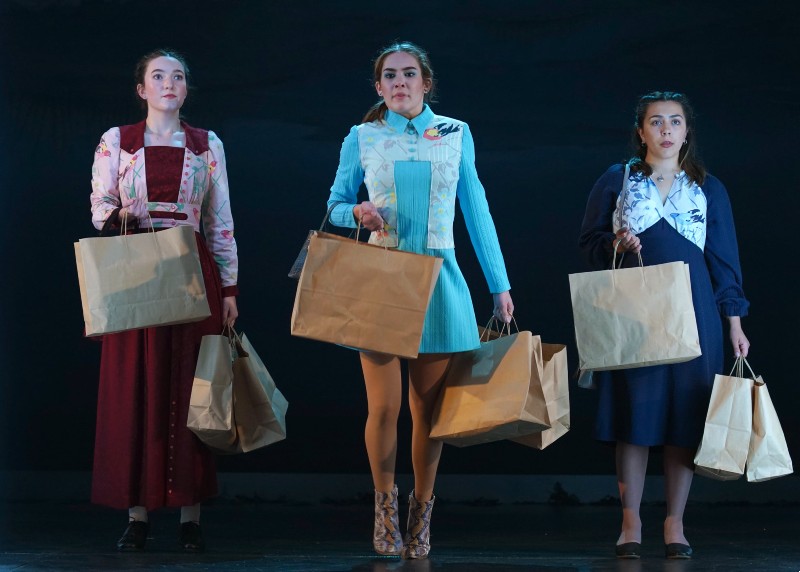
I felt guilty for stealing away, by myself, for a few hours on Sunday to see U-M’s Department of Theatre and Drama production of Stef Smith’s Nora: A Doll’s House, leaving my kids and spouse to fend for themselves.
Fittingly, this discomfort points to Nora’s raison d’être: no matter how much we want to believe otherwise, a woman’s role in the domestic sphere really hasn’t changed that much over the past century.
Using Henrik Ibsen’s classic 1879 play, A Doll’s House, as a blueprint, Smith retells the story of Nora—who scrambles to keep secret her method of keeping the family afloat during her husband’s past illness—as she would appear in three different time periods: 1918, 1968, and 2018.
Encore Musical Theatre Company opens its new home and 13th season with "Smokey Joe’s Cafe"
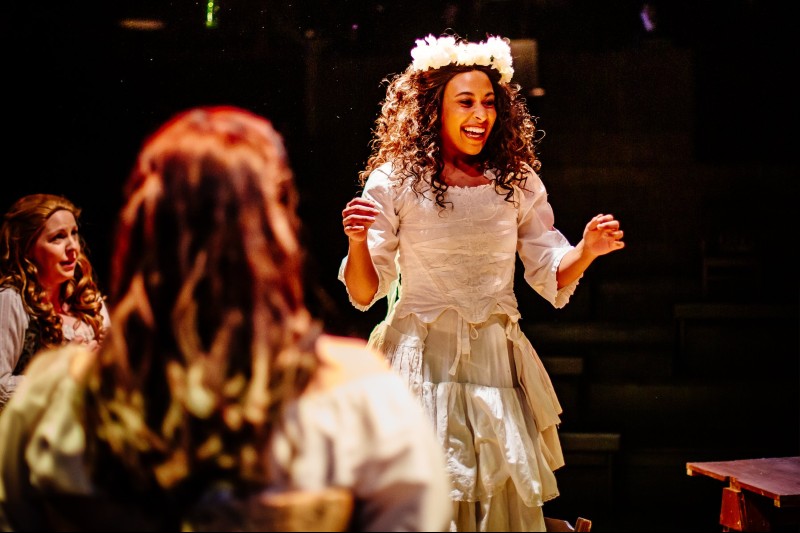
Live theater is back and the Encore Musical Theatre Company is celebrating the opening of its 13th season in its spectacular new space in Dexter and in the always rocking Smokey Joe’s Cafe.
Dan Cooney and company couldn’t have picked a better show to reignite live theater after the long pandemic drought than Smokey Joe’s Cafe, a revue tribute to the music of Jerry Leiber and Mike Stoller. It’s not the traditional musical that Encore does so well but is instead 90 minutes of pure energy, one great song after another by talented performers who take us back to those early days of rock 'n' roll and rhythm 'n' blues. Leiber and Stoller were there at the creation.
The duo of New York songwriters could and did write hit songs in nearly every genre from folk and country to rhythm and blues to the edges of pop opera. They wrote for such dynamic groups as The Drifters and The Coasters as well as for the distinct voices of the roaring Big Mama Thornton and the early soul sound of Ben E. King to Elvis Presley. And the hits just kept coming as the duo embraced the new music while also giving it their own unique voice.
Smokey Joe's is a roadhouse, the subject of one of Leiber and Stoller’s songs, and an appropriate setting for their take on the ups and downs of life and love. Though there is no storyline, director Dan Cooney’s staging suggests a loose interaction between characters from song to song. A small combo is set up as the cafe’s house band providing a rock-steady beat and great sound.
Theatre Nova's "The Lifespan of a Fact" is a compelling issue play built on a lopsided debate
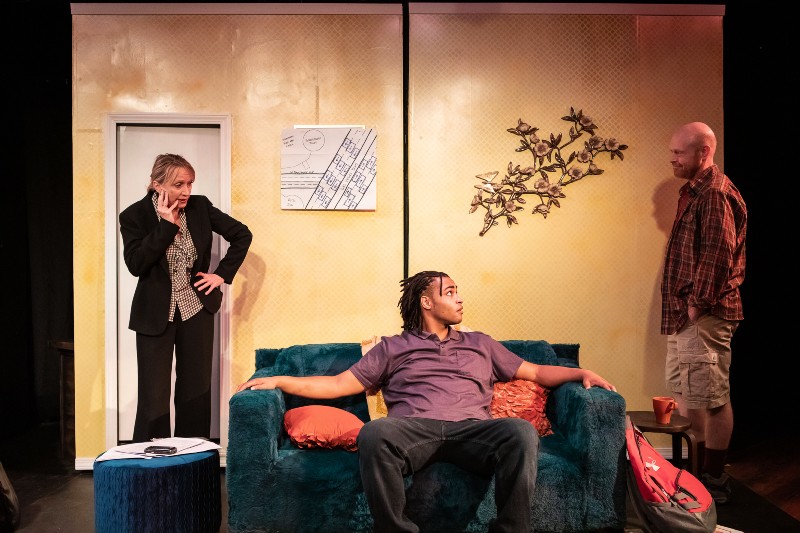
During a set change in Theatre Nova’s first live, in-person production in front of an audience since March 2020, a stage crew duo flipped and turned an office desk to reveal a fluffy couch.
As this metamorphosis played out on the Yellow Barn’s stage Saturday night, the audience—masked and seated in spread-out chairs—ooooh-ed and gasped in delighted surprise.
I’m clearly not the only one who’s been pining for little hits of theater magic during this pandemic.
University of Michigan School of Music, Theatre & Dance announces 2021-2022 productions
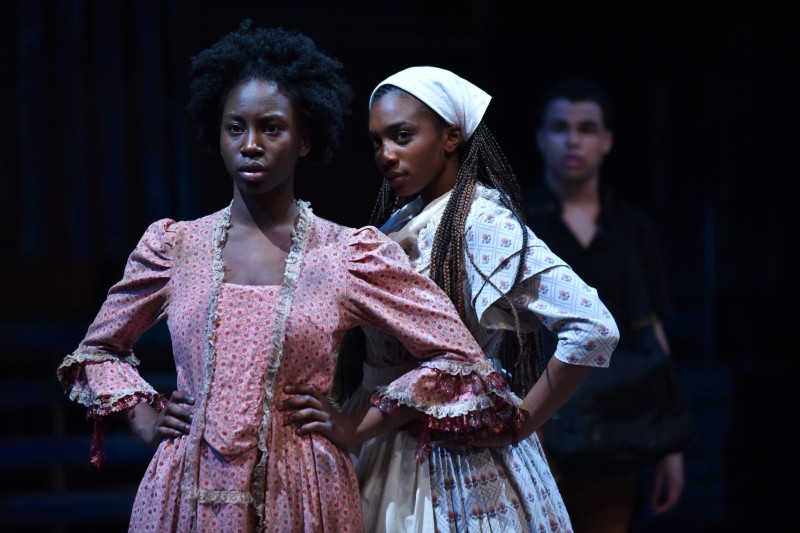
Drama is back at the University of Michigan.
No, I'm not talking about any political, criminal, or social issues.
The University of Michigan School of Music, Theatre & Dance (UMSMTD) announced 10 performances and one studio production as part of its 2021-22 production season, which runs from September 30 to April 17.
“Our goal this year is to return to creating the same high-quality productions you’ve come to know and love while providing more flexibility to better accommodate our audiences’ health and safety needs,” said Jeffrey Kuras, executive director of the school’s University Productions, in a press release.
Some of the other annual performances—Grand Night for Singing, Halloween Concert, Band-O-Rama, and Collage Concert—will be announced at a later date. Tickets for all the events will eventually be available at tickets.smtd.umich.edu.
"The SMTD Flex Series will allow audiences to select the four shows they would like to attend at a discounted price," according to the UMSMTD press release. "The Flex Series joins the existing Power Series, which allows audiences to purchase all four shows at the Power Center for the Performing Arts for a discounted price." (The Power Center turns 50 this year.)
Here's a rundown of UMSMTD's 2020-2021 season events:
Review: Ann Arbor Summer Festival’s “A Thousand Ways (Part One): A Phone Call”
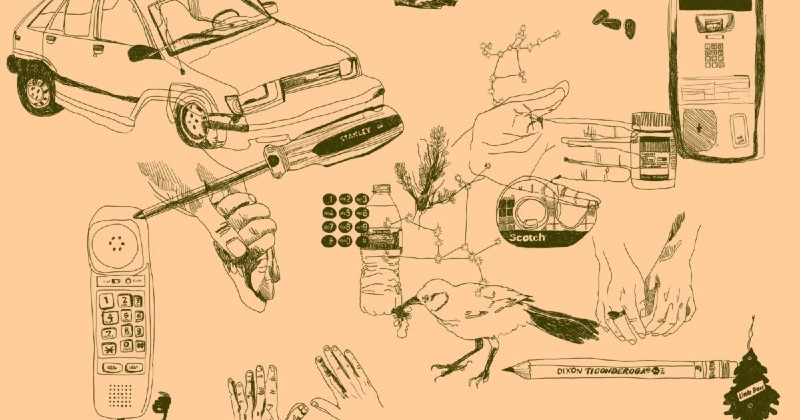
By sheer coincidence, I experienced the Ann Arbor Summer Festival’s theatrical presentation of A Thousand Ways (Part One): A Phone Call at a time when I’d also revisited Mandy Len Catron’s viral essay, “To Fall in Love with Anyone, Do This,” which references 36 questions purported to accelerate intimacy between two strangers.
What’s the connection, you ask?
A Thousand Ways (created by Brooklyn-based troupe 600 Highwaymen) is a phone conversation between you and a stranger, moderated by a pre-recorded, Siri-like voice that poses questions, offers pieces of an imagined narrative, and issues orders. By the end of the hour-long call—filled with seemingly innocuous queries that nonetheless revealed a great deal about ourselves—I felt strangely connected to, and emotionally invested in, the other participant.
To the point that I felt a little heartbroken when I realized that neither of us had enough information to find each other later in real life.
And I felt this sadness despite the fact that we never exchanged names or laid eyes on each other (the latter was part of psychologist Arthur Aron’s experiment, which gave rise to the infamous 36 questions).
The impact struck me as especially curious in this moment, when we’re all slowly emerging from our respective pandemic hidey-holes. We’ve been able to talk by phone with each other this whole time; it was, indeed, one of the safest means of socializing. So why did a pre-recorded moderator make it a far more meaningful, memorable phone conversation than most I had with friends and family during quarantine?
U-M's Not Even Really Drama Students (NERDS) created a series of original musical audio dramas
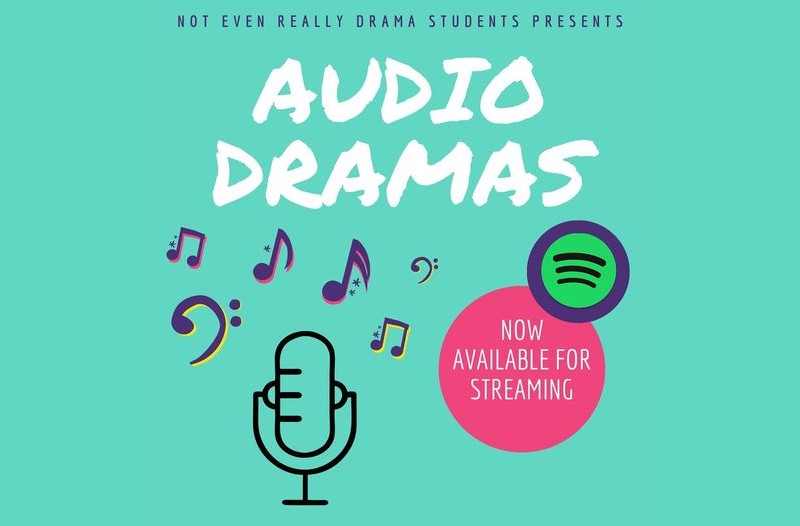
I've lived in Ann Arbor for nearly five years and I'm still discovering student groups at the University of Michigan who are producing original music, art exhibitions, videos, films, literature, photography, magazines, and theater. Campus talent runs DEEP.
Today's discovery is the Not Even Really Drama Students (NERDS), which creates original musical dramas. I assume that normally they would stage the productions somewhere, but over the past year, these students created a series of original audio and video musical dramas that they've uploaded to YouTube and Spotify.
The 10 audio dramas currently on Spotify will eventually be uploaded to YouTube as well, but for now, the video service is the place where you can see NERDS' variety shows and full-length audio-video musicals such as The Seven Deadly Sins.
Go Behind the Scenes of "Temping," a One-Person Performance Starring You
Get a behind-the-scenes tour of Temping, the Ann Arbor Summer Festival's ongoing, immersive, one-person theater experience. AADL interviews designer Asa Wember and director Michel Rau, giving viewers a glimpse into this wildly imaginative experience.
"Temping" is written by Michael Yates Crowley, designed by Asa Wember and Sara C. Walsh, and directed by Michael Rau. It is hosted by the Ann Arbor Summer Festival from June 15th through July 3rd in partnership with the Ann Arbor District Library. You can register for your session here.
Related:
➥ "Face to Interface: A2SF's Temping is an uncanny, moving performance for one" [Pulp, June 16, 2021]


































